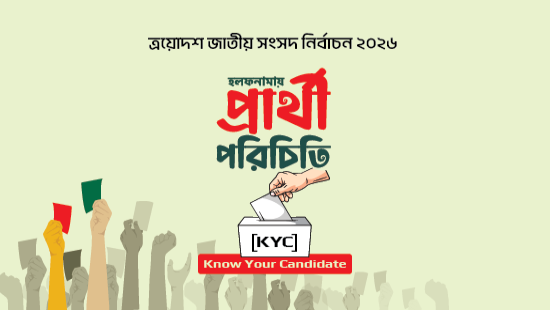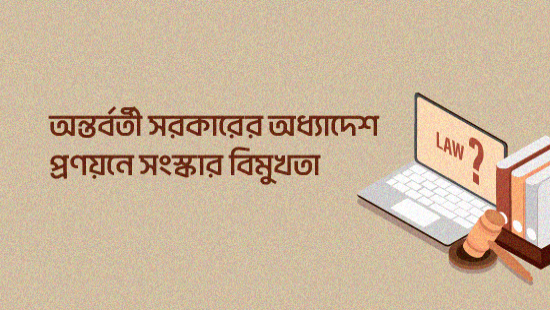Press Release
Dhaka, 26 November 2025: Transparency International Bangladesh (TIB) has stated that foreign investment in the development of Chattogram Port could be positive news for the country; however, for the sake of transparency and accountability, the government must disclose all information and conditions related to the contract process. Similarly, to enhance the effectiveness of the ports, the apparent hasty initiatives in creating new terminals and managing the current ones need clarification. The government must explain whether these choices are being made on an ad-hoc basis or as part of a long-term strategic plan to control the ports. This must be made clear, commented TIB.
Referring to the recent signing of the Laldia and Pangaon agreements with the Denmark-owned APM Terminals and the Switzerland-based Medlog SA, respectively, TIB Executive Director Dr. Iftekharuzzaman said, “We appreciate the government’s any initiatives to attract direct foreign investment in port development and other sectors for overall economic progress. However, in this case, along with ensuring procedural transparency, it must be made public how issues related to national interests have been safeguarded in such agreements. It should be noted that the foreign company with which the Laldia Terminal construction agreement has been signed did not come here to provide ‘public service or charity.’ The primary purpose of their investment is to earn profit. Therefore, it is only natural that the government must also consider the country’s long-term economic gains and losses, as well as national interest. In this context, a thorough analysis to ensure maximum benefit is essential. Moreover, if the international reputation of the company was a key factor in signing the Laldia Terminal agreement, then it must also be considered whether the company’s international track record in transparency, accountability, and handling corruption has been analyzed. Any risk mitigation measures or protective and remedial clauses to safeguard the country’s interests should also be included in the agreement and made public. At the same time, the government has a responsibility to inform the public about the process through which APM Terminals was selected over other potential companies according to the relevant criteria.”
Dr. Zaman further said, “Has an analysis been conducted on the port-centered employment and the positive and negative impacts on various related institutions and stakeholders? Overall, to what extent have the interests of the public been considered, and how much does this agreement contribute to developing local skills and capacities in this sector? Moreover, is there a clear economic strategic roadmap that formed the basis of the government’s decision to sign this long-term agreement? Since the government has already signed the agreement, answers to these questions related to national interest must be promptly disclosed to the public in the interest of transparency.”
Dr. Iftekharuzzaman further said, “Although the report of the International Finance Corporation (IFC), acting as the transaction adviser for Bangladesh in connection with the APM agreement, had projected a 62-day timeframe to complete the agreement after the submission of the proposal, from the submission of the proposal to the Chief Adviser’s final approval and the signing of the agreement—10 important steps (technical and financial evaluation, negotiation, port board meeting, and approvals from the Ministry of Shipping and the Ministry of Law, and the Letter of Award), each of which requires thorough scrutiny as a matter of state-level importance—were completed at an unusually rapid pace within only two weeks. This creates a reasonable basis for questioning the entire process. Therefore, a clear explanation from the government on this matter is imperative. Moreover, if the Pangaon terminal agreement was conducted through a competitive process, then what was the rationale behind adopting an exceptional process in the case of Laldia? We call on the government to clarify this as well.”
Leaving the question of to what extent the opinions of local stakeholders were considered before signing the agreement, Dr. Zaman said, “Alongside the positive aspects of such long-term agreements in the international arena, have factors such as examples of economic risks in developing countries like ours, and our capacity to provide possible remedies or fulfill liabilities, been taken into account? At the same time, regarding the profits that the foreign operator will earn from the investment, what will the state gain in return? If any cost-benefit analysis has been conducted, and to what extent the agreement mentions the financial gains or losses for the country’s population, this has not been made public. In this context, the government must clarify its position to ensure transparency and make it public.”
Media Contact:
Mohammad Tauhidul Islam
Director, Outreach and Communication
Phone: +8801713107868
Email: tauhidul@ti-bangladesh.org







